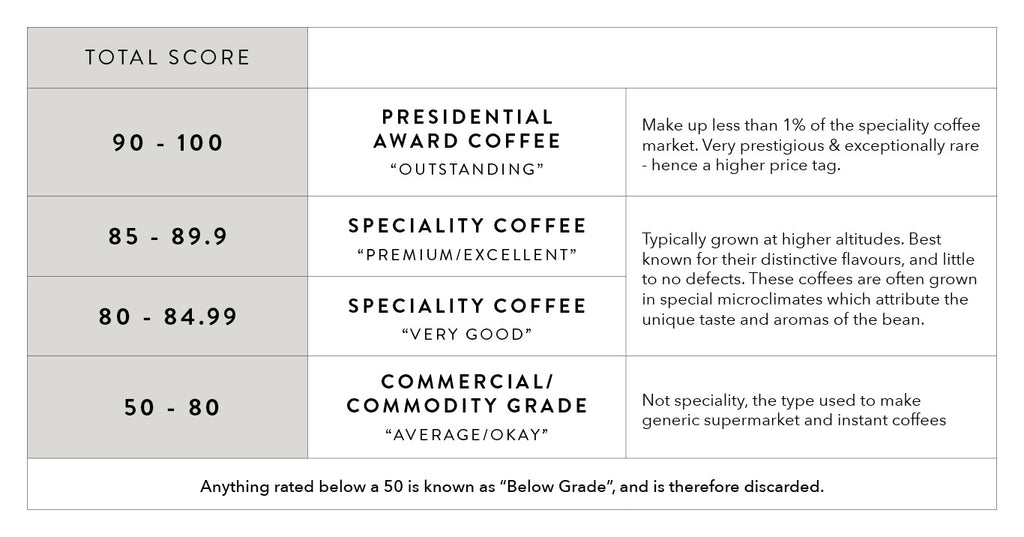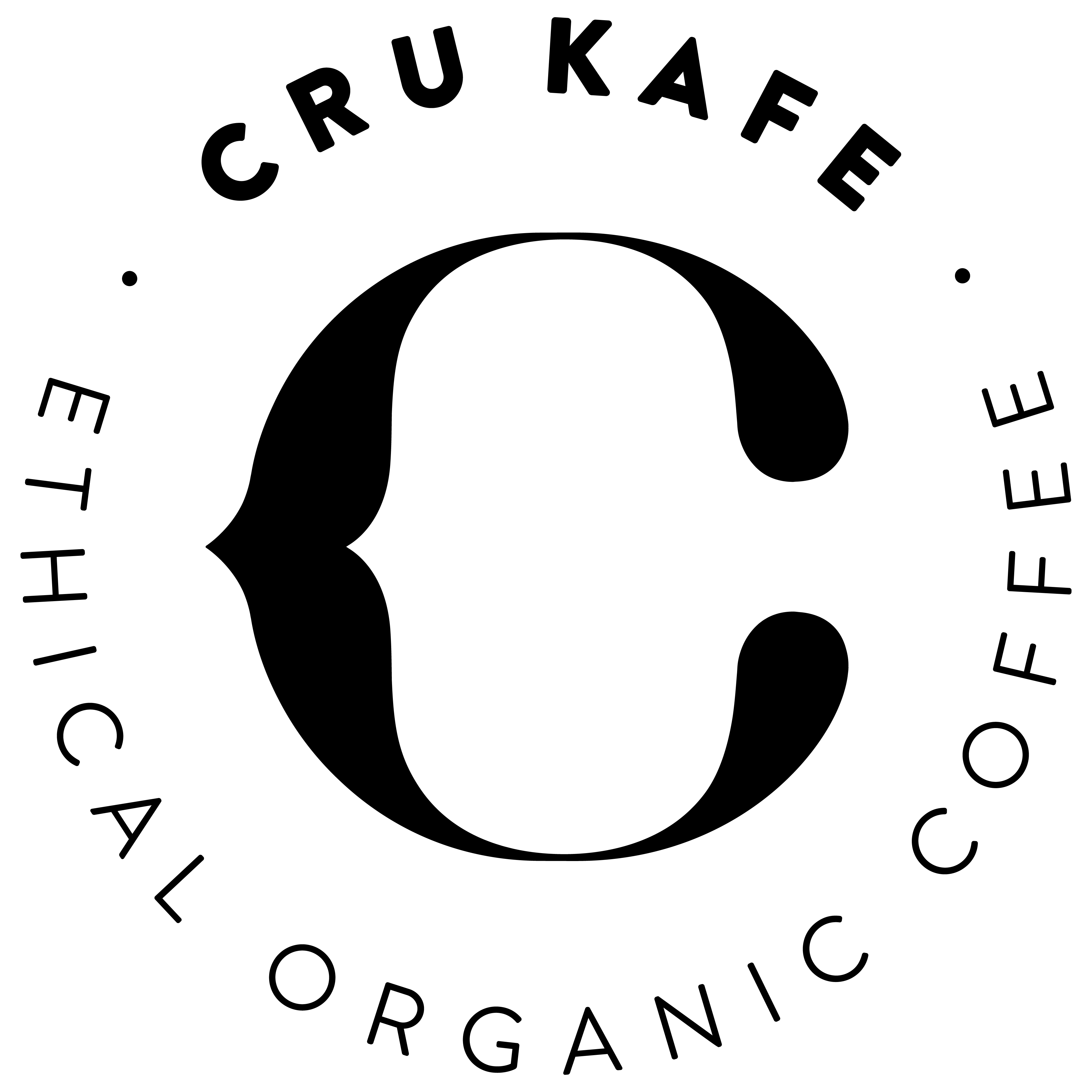Coffee’s entire journey, from cherry to cup, is an intricate and nuanced process. From the climate in which a coffee plant is grown and the amount of sun and water it receives, to when the fruit is harvested and how the cherry is dried, even to the storage and transport of the green coffee beans can impact its overall taste and quality.
But have you ever noticed a coffee that’s been given a score? What about a coffee being noted as ‘speciality’? Sure, it doesn’t take much to know that the higher the rating, the better, or that ‘speciality’ coffee is not your average cup of joe, but what exactly does it mean, and how does scoring work?
Coffee Cupping & Scoring
In short, coffee cupping is a critical way to test coffees and the scoring provides a consistent methodology for evaluating the coffee’s quality. It’s used across the entire supply chain by roasters, buyers, producers, and farmers.
When cupping a coffee, certified coffee tasting professionals (yes, it’s a thing!), better known as Q-graders, follow a standardised set of criteria set forth by the SCA, the Speciality Coffee Association. Q-graders are essentially the sommeliers of the coffee world; and much like wine tasting, the criteria covered in a cupping covers everything from taste, mouthfeel and aroma, to sweetness, acidity and overall ‘defects’ of the beans.
Coffee is graded on a scale of 0-100, with those rating above 80 being noted as “Speciality Coffee”, and those below 80 as “Commercial Grade”.

Speciality Coffee
Speciality coffee is typically grown at high altitudes in microclimates, by farmers who have intimately gotten to know the best growing practices - everything from the right time of year to grow and harvest the beans, to the best soil conditions. Many of these speciality coffee growing businesses are run by families or communities who have dedicated their lives to producing some of the world’s finest coffee.
Not only does speciality coffee taste great, but it is kinder to our environment and farmers as well. According to the SCA, a coffee cannot be fully considered ‘speciality’ unless it has passed strict sustainability measures.
The exacting process of producing speciality grade coffee and ensuring fair wages for suppliers ultimately commands a higher price tag. As such, speciality coffees tend to attract more prudent customers, who can appreciate the more refined tasting and aroma notes.




